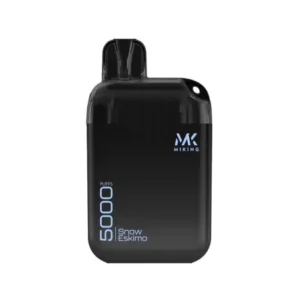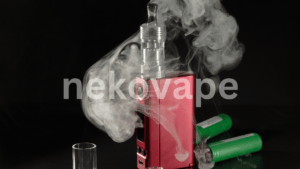A Comprehensive Guide to Vape Shops: Regulations and Age Restrictions for Responsible Sales
Introduction
Vape shops, also known as vape stores or e-cigarette shops, have gained significant popularity in recent years as vaping has emerged as an alternative to traditional smoking. However, the rise of vaping has brought about numerous health and regulatory concerns, necessitating strict regulations and age restrictions to ensure responsible sales. This article delves into the regulatory landscape governing vape shops, the importance of age restrictions, and the measures these shops must take to comply with the law and promote public health.
The Rise of Vaping
Vaping involves inhaling vapor produced by an electronic device, commonly known as a vape or e-cigarette, which heats a liquid (often containing nicotine) to produce vapor. Many smokers have turned to vaping as a less harmful alternative to smoking tobacco, contributing to the rapid growth of the vaping industry.
Health Concerns
Despite the perceived benefits of vaping over smoking, it is not without health risks. Studies have shown that vaping can still lead to nicotine addiction and may have other long-term health effects that are not yet fully understood. This has prompted public health officials to advocate for stringent regulations to control the availability and marketing of vaping products.
Regulatory Landscape
Federal Regulations
In many countries, federal regulations play a crucial role in controlling the sale and distribution of vaping products. For instance, in the United States, the Food and Drug Administration (FDA) oversees the regulation of e-cigarettes and related products under the Tobacco Control Act. The FDA requires vape shops to adhere to several regulations, including product registration, ingredient disclosure, and pre-market approval of new products.
Local and State Regulations
Apart from federal regulations, local and state governments also impose additional rules on vape shops. These can vary significantly from one region to another. Common local regulations include restrictions on the sale of flavored e-liquids, zoning laws that dictate where vape shops can be located, and specific licensing requirements for retailers.
Importance of Age Restrictions
One of the most critical aspects of vaping regulations is the enforcement of age restrictions. These laws are designed to prevent minors from accessing vaping products, thereby reducing the risk of nicotine addiction and other associated health issues.
Legal Age for Vaping
The legal age for purchasing vaping products varies by country and, in some cases, by state or province. In the United States, the legal age was raised from 18 to 21 with the passage of the Tobacco 21 law in 2019. This change was implemented to curb the increasing use of e-cigarettes among teenagers.
Enforcement Measures
To ensure compliance with age restrictions, vape shops are required to implement several enforcement measures. These include verifying the age of customers through valid identification, training employees on age verification procedures, and prominently displaying age restriction signs within the store.
Compliance Measures for Vape Shops
Employee Training
Effective employee training programs are essential for ensuring that staff understand and adhere to the regulations. This training typically covers how to verify customer age, the importance of compliance, and the potential legal repercussions of non-compliance.
Record Keeping
Vape shops must maintain accurate records of all transactions, especially those involving age verification. These records can serve as evidence of compliance in case of inspections or legal challenges.
Product Labeling and Advertising
Regulations often require vape products to carry specific health warnings and information about nicotine content. Additionally, advertising restrictions aim to prevent the marketing of vaping products to minors. Vape shops must ensure that all promotional materials comply with these guidelines.
Challenges Faced by Vape Shops
Navigating Complex Regulations
Vape shop owners must navigate a complex web of federal, state, and local regulations, which can be challenging and time-consuming. Staying updated with the latest legal requirements and ensuring full compliance can be a significant burden, especially for small business owners.
Countering Negative Perceptions
The vaping industry often faces negative perceptions due to health concerns and its association with smoking. Vape shops must work to educate customers about the responsible use of their products and the steps they take to comply with regulations and promote public health.
The Role of Technology in Compliance
Age Verification Technology
Advancements in technology have made it easier for vape shops to comply with age verification requirements. Online sales platforms, for example, can integrate sophisticated age verification systems that cross-reference customer information with government databases to confirm legal age.
Inventory Management Systems
Modern inventory management systems help vape shops maintain accurate records of product sales and compliance with ingredient disclosure requirements. These systems can also alert shop owners when regulatory changes affect their inventory.
Promoting Responsible Vaping
Educating Customers
Vape shops play a crucial role in educating customers about the risks and benefits of vaping. This includes providing information about the proper use of devices, the potential health effects of vaping, and the importance of using products responsibly.
Community Engagement
Engaging with the local community and participating in public health initiatives can help vape shops build a positive reputation and demonstrate their commitment to responsible business practices. This can include hosting educational events, supporting anti-smoking campaigns, and partnering with public health organizations.
Future Trends in Vaping Regulation
Increasing Scrutiny
As the vaping industry continues to evolve, it is likely to face increasing scrutiny from regulators and public health officials. This could lead to more stringent regulations and a greater emphasis on enforcement.
Global Harmonization of Standards
There is a growing trend towards the harmonization of vaping regulations at an international level. Organizations like the World Health Organization (WHO) are working to develop global standards for the regulation of e-cigarettes, which could influence national policies and practices.
Conclusion
Vape shops occupy a critical position at the intersection of public health, consumer demand, and regulatory oversight. Ensuring responsible sales through adherence to regulations and age restrictions is essential for protecting public health and maintaining the credibility of the vaping industry. By staying informed about the latest regulatory developments, implementing effective compliance measures, and promoting responsible vaping practices, vape shops can play a positive role in their communities while supporting the needs of adult consumers seeking alternatives to traditional smoking.












